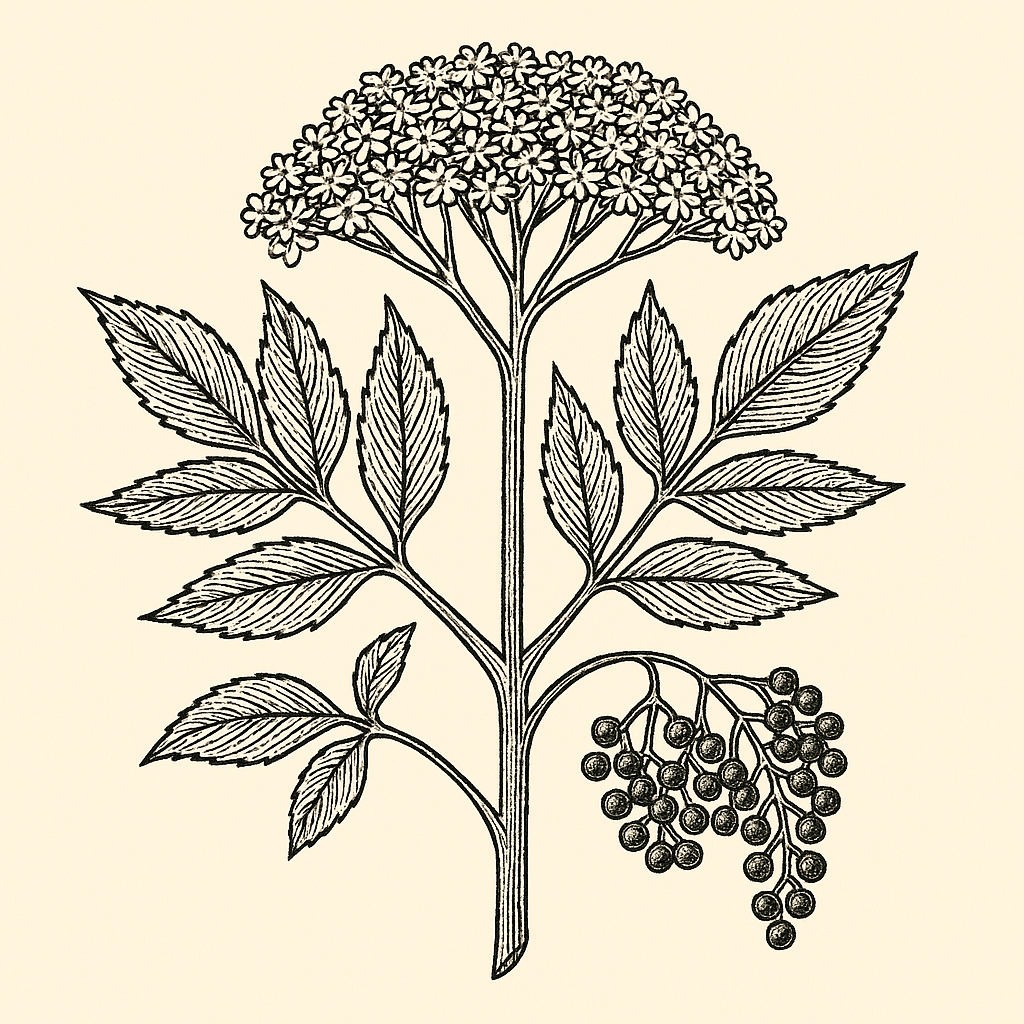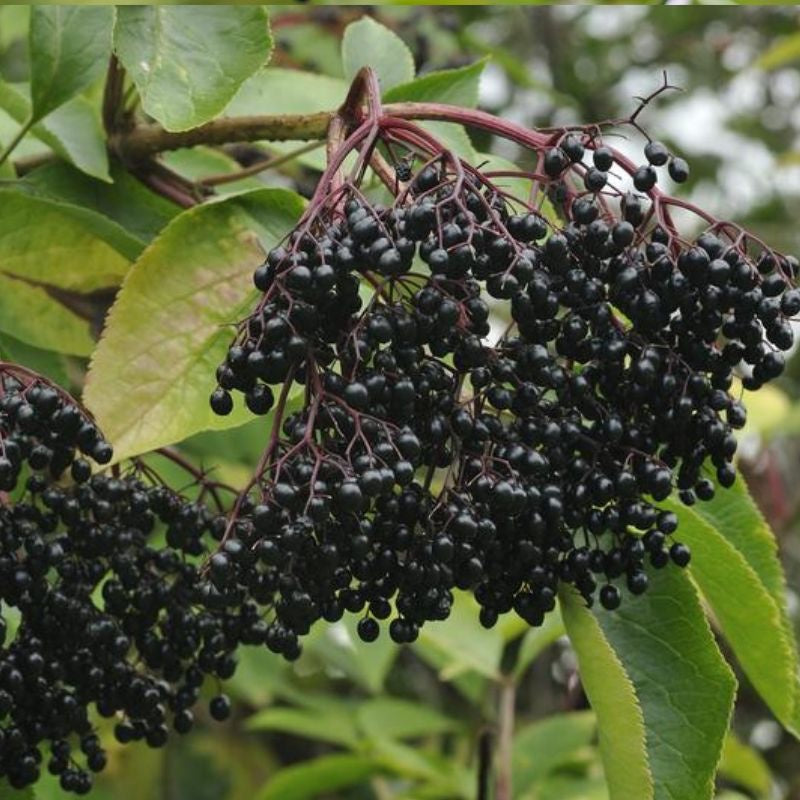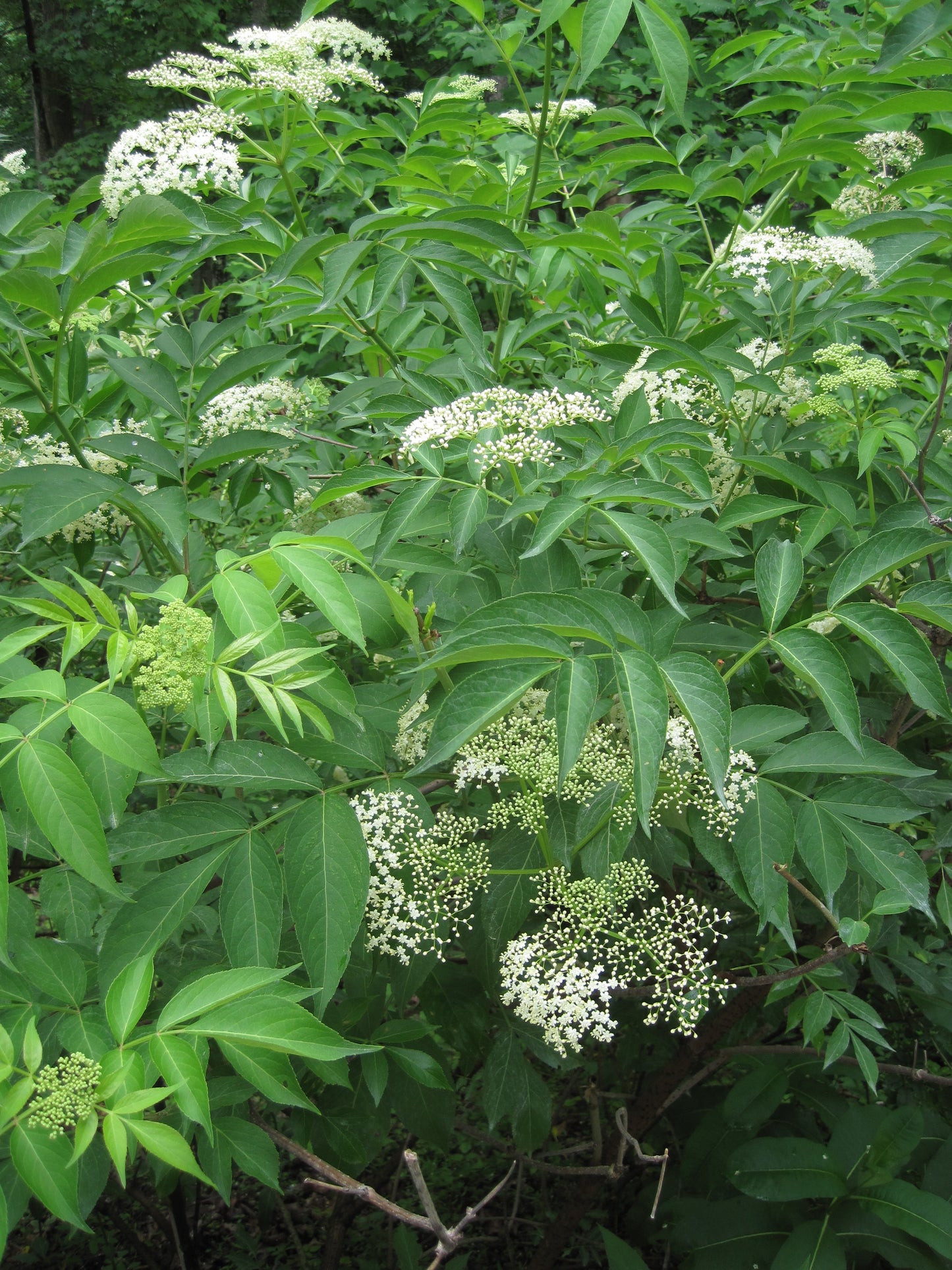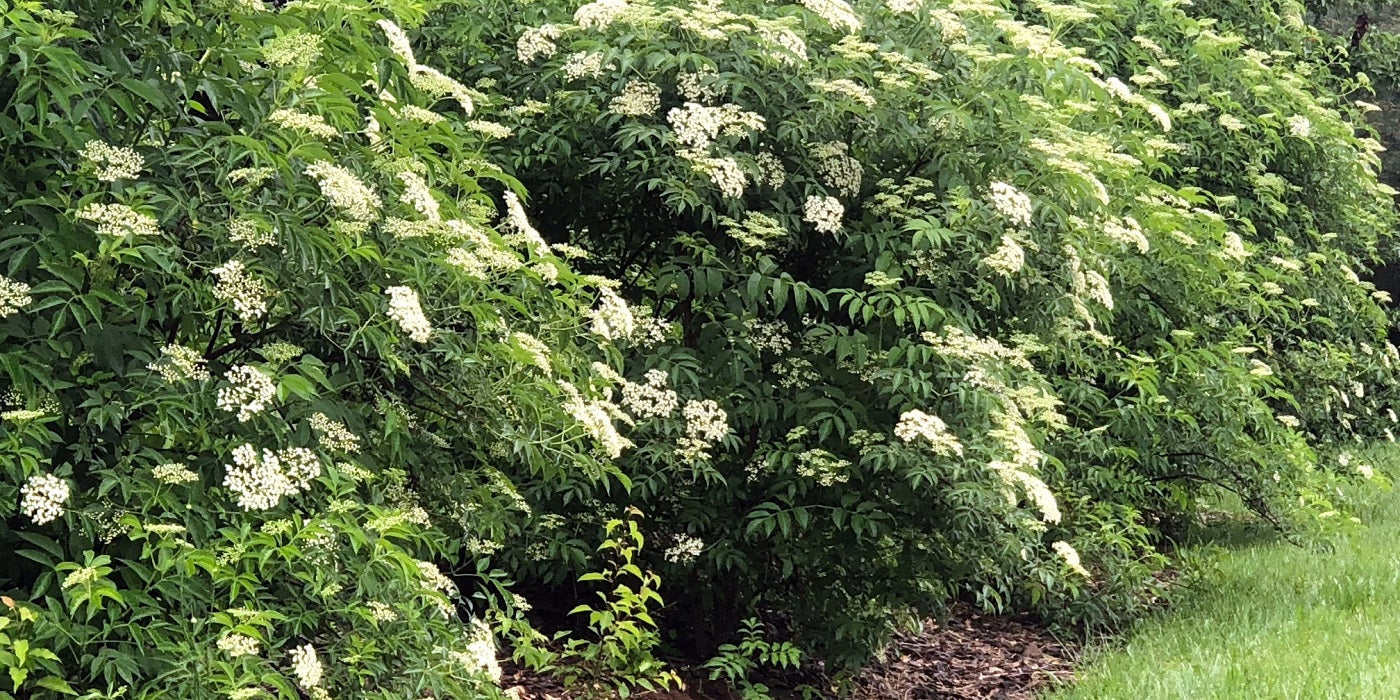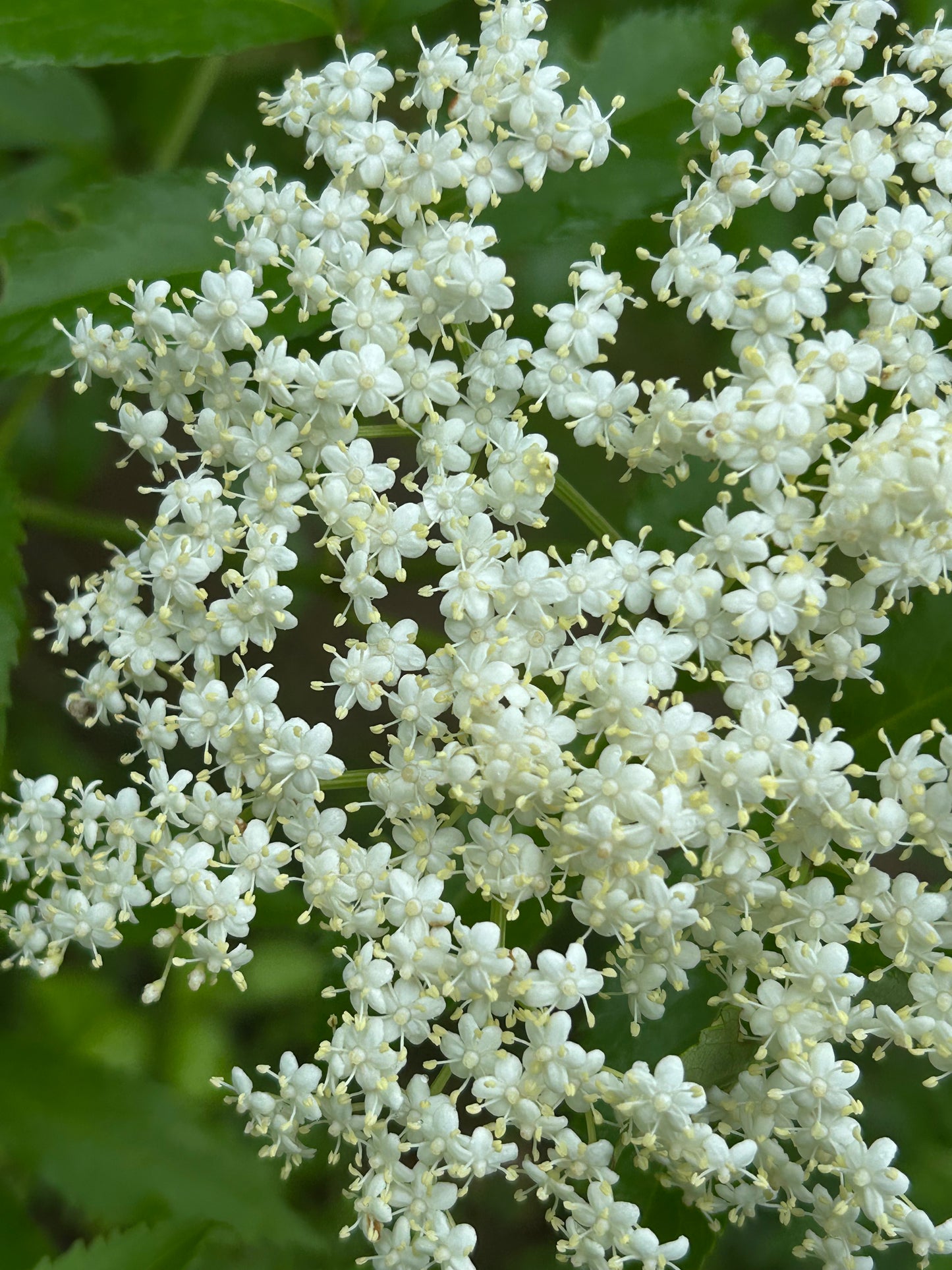Elderberry
Elderberry
Couldn't load pickup availability
Elderberry (Sambucus canadensis)
A fast-growing native shrub with beauty, yield, and deep roots in herbal tradition, Sambucus canadensis, American elderberry, is one of the most versatile plants for edible and ecological landscapes. In early summer, it bursts into wide, creamy-white flower clusters that feed pollinators and light up hedgerows. By late summer, these become heavy, dark purple berries, prized for making syrup, wine, jelly, and immune-supporting remedies.
Elderberry thrives in a range of conditions, from moist meadows and streambanks to sunny garden edges. It spreads by suckers to form dense thickets, offering habitat and food for birds, insects, and small mammals. Its fast growth, tolerance of wet soil, and multi-stemmed form make it ideal for edible hedges, riparian restoration, and permaculture designs.
This is a plant for both people and the land. Abundant, resilient, and rooted in centuries of use.
Details:
-
Height: 6–12 feet
-
Spread: Spreads by root suckers
-
Light: Full sun to part shade
-
Soil: Moist, well-drained; tolerates wet or heavy soils
-
Bloom time: Early to mid-summer
-
Fruit: Late summer; edible when cooked
-
Pollination: Best fruit set with two or more genetically distinct plants
-
Edibility: Flowers and ripe berries are edible (berries must be cooked); stems, leaves, and unripe fruit are toxic
-
Wildlife value: High—supports pollinators, birds, and mammals
-
Zones: 3–9
-
Native to: Eastern and central North America
Varieties:
'York'
A high-yielding, vigorous variety known for its extra-large, sweet-tart berries and compact growth habit (6–8 ft). ‘York’ ripens earlier than most and is ideal for syrup, jelly, or winemaking. Excellent pollinator for other varieties, but for best fruit set, pair with ‘Adams’ or another elderberry.
'Adams'
A classic cultivar with heavy yields of medium-sized berries on large, spreading plants (up to 10–12 ft tall). ‘Adams’ blooms and ripens a bit later than ‘York,’ extending your harvest window. Pairs well with ‘York’ for strong cross-pollination and abundant fruit.
'Granby Wild'
Seed-grown from wild populations in western Massachusetts, this native elderberry is genetically diverse, hardy, and ecologically valuable. Taller and more naturalized than named varieties, it’s ideal for restoration, hedgerows, and wildlife plantings, with reliably flavorful berries for home use.
Share
